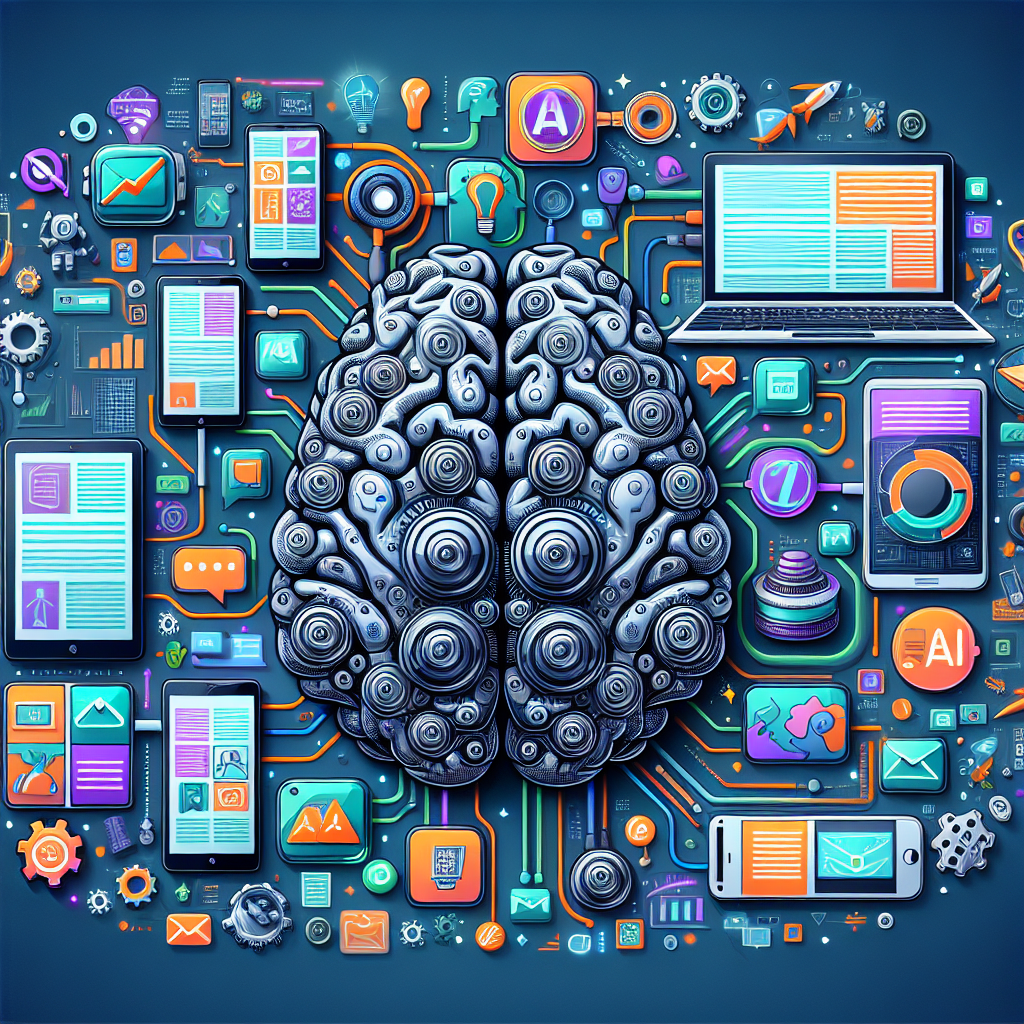In today’s fast-paced digital world, content marketing has evolved to become more sophisticated and data-driven than ever before. With the rise of artificial intelligence (AI) technology, marketers now have access to powerful tools that can help them create more personalized, targeted, and engaging content for their audience.
AI-powered content marketing strategies leverage machine learning algorithms to analyze data, predict trends, and optimize content performance. By harnessing the power of AI, marketers can gain valuable insights into their audience’s behavior, preferences, and needs, allowing them to create more relevant and impactful content that drives results.
In this article, we will explore the benefits of AI-powered content marketing strategies, how to implement them effectively, and address some common FAQs about this innovative approach to content marketing.
Benefits of AI-Powered Content Marketing Strategies
1. Personalization: One of the biggest advantages of AI-powered content marketing is the ability to deliver personalized content to each individual user. By analyzing data such as browsing history, purchase behavior, and social media interactions, AI algorithms can create customized content recommendations that resonate with each user’s unique interests and preferences.
2. Predictive Analytics: AI technology can analyze vast amounts of data to identify patterns and trends that can help marketers predict future behaviors and preferences. By leveraging predictive analytics, marketers can anticipate customer needs and deliver content that is timely and relevant.
3. Automation: AI-powered tools can automate repetitive tasks such as content creation, distribution, and optimization, freeing up marketers to focus on more strategic initiatives. By automating routine processes, marketers can scale their content marketing efforts and reach a larger audience more efficiently.
4. Optimization: AI algorithms can continuously monitor and analyze the performance of content campaigns in real-time, allowing marketers to optimize their strategies for maximum impact. By leveraging AI-powered analytics, marketers can identify trends, patterns, and opportunities to improve their content marketing efforts and drive better results.
5. ROI: Ultimately, AI-powered content marketing strategies can help marketers improve their return on investment (ROI) by delivering more targeted, personalized, and engaging content to their audience. By leveraging AI technology, marketers can drive higher conversion rates, increase customer loyalty, and achieve their business goals more effectively.
How to Implement AI-Powered Content Marketing Strategies
1. Data Collection: The first step in implementing AI-powered content marketing strategies is to collect and analyze relevant data about your audience. This can include demographic information, browsing behavior, purchase history, social media interactions, and other data points that can help you understand your audience’s preferences and needs.
2. AI Tools Selection: Once you have collected your data, the next step is to select the right AI-powered tools for your content marketing strategy. There are a variety of AI tools available that can help you with content creation, optimization, distribution, and analytics. Some popular AI tools for content marketing include natural language generation (NLG) tools, predictive analytics platforms, and content recommendation engines.
3. Content Creation: AI-powered tools can help you create more engaging and relevant content for your audience. For example, NLG tools can generate personalized product descriptions, blog posts, and social media updates based on data insights. By leveraging AI technology, you can create content that resonates with your audience and drives engagement.
4. Content Optimization: AI algorithms can help you optimize your content marketing efforts by analyzing data and identifying opportunities for improvement. By leveraging AI-powered analytics, you can track the performance of your content campaigns, identify trends and patterns, and make data-driven decisions to optimize your strategy for maximum impact.
5. Testing and Iteration: As with any marketing strategy, it’s important to test and iterate on your AI-powered content marketing efforts to refine your approach over time. By testing different content types, messaging, and distribution channels, you can gather valuable insights that can help you improve your content marketing strategy and achieve better results.
FAQs about AI-Powered Content Marketing Strategies
Q: What is artificial intelligence (AI) and how does it apply to content marketing?
A: Artificial intelligence refers to the simulation of human intelligence processes by machines, particularly computer systems. In the context of content marketing, AI technology can analyze data, predict trends, and optimize content performance to help marketers create more personalized, targeted, and engaging content for their audience.
Q: How can AI-powered content marketing strategies benefit my business?
A: AI-powered content marketing strategies can benefit your business in several ways, including personalized content recommendations, predictive analytics, automation of repetitive tasks, optimization of content campaigns, and improved ROI. By leveraging AI technology, you can create more relevant and impactful content that drives results and helps you achieve your business goals more effectively.
Q: What are some popular AI tools for content marketing?
A: Some popular AI tools for content marketing include natural language generation (NLG) tools, predictive analytics platforms, and content recommendation engines. These tools can help you with content creation, optimization, distribution, and analytics, allowing you to create more engaging and relevant content for your audience.
Q: How can I implement AI-powered content marketing strategies in my business?
A: To implement AI-powered content marketing strategies in your business, start by collecting and analyzing relevant data about your audience. Then, select the right AI tools for your content marketing strategy, create engaging and relevant content, optimize your campaigns with AI-powered analytics, and test and iterate on your approach to refine your strategy over time.
In conclusion, AI-powered content marketing strategies offer marketers a powerful way to create personalized, targeted, and engaging content for their audience. By leveraging AI technology, marketers can gain valuable insights into their audience’s behavior, preferences, and needs, allowing them to optimize their content marketing efforts for maximum impact. By implementing AI-powered content marketing strategies effectively, marketers can drive higher conversion rates, increase customer loyalty, and achieve their business goals more effectively.

